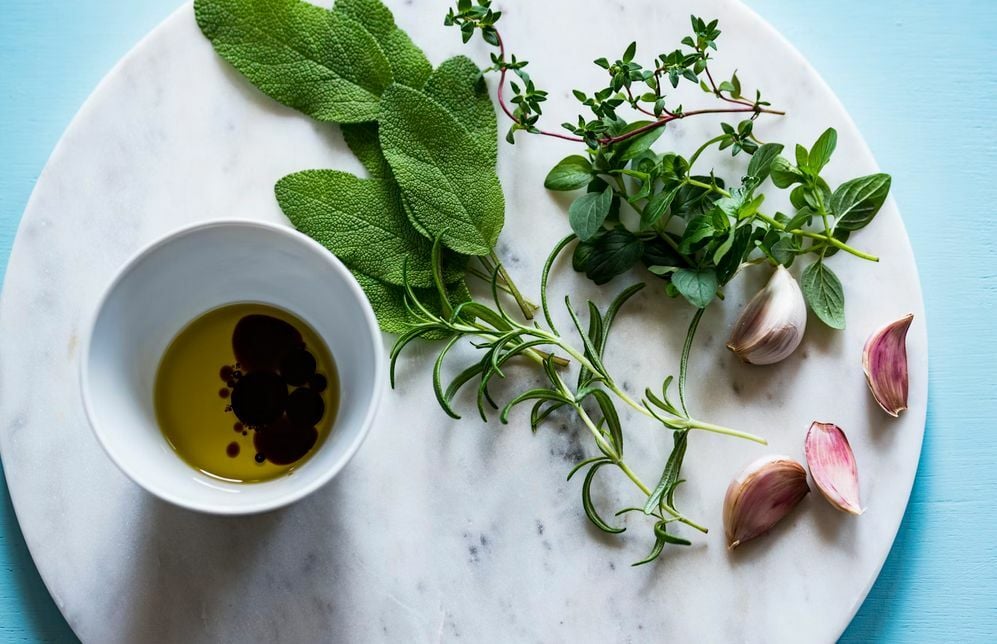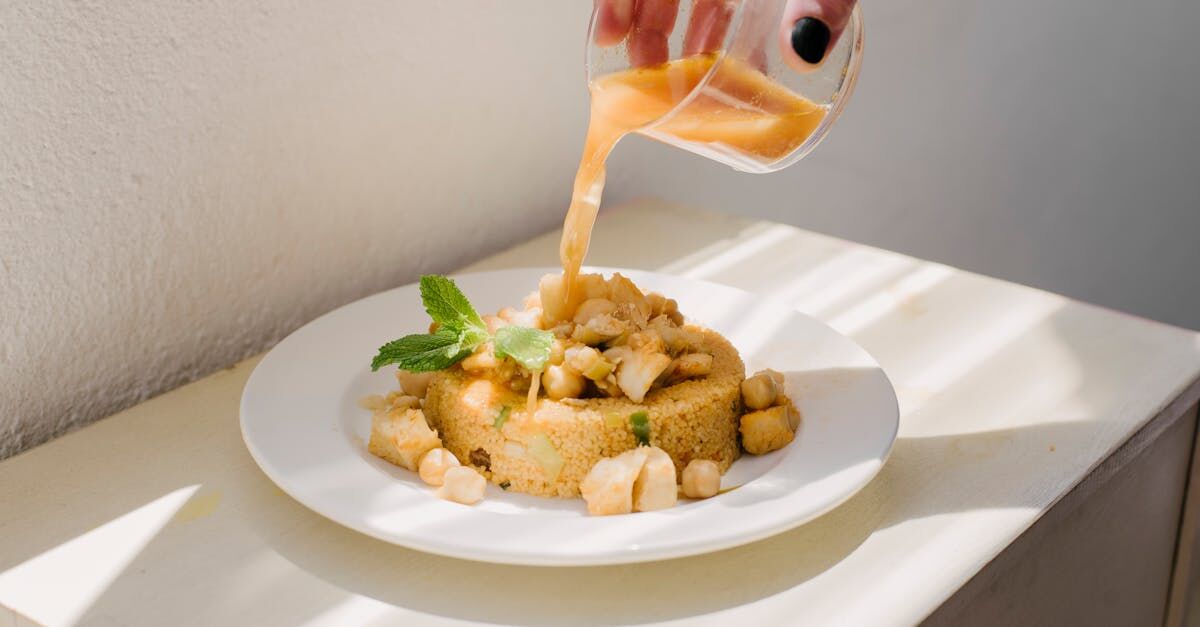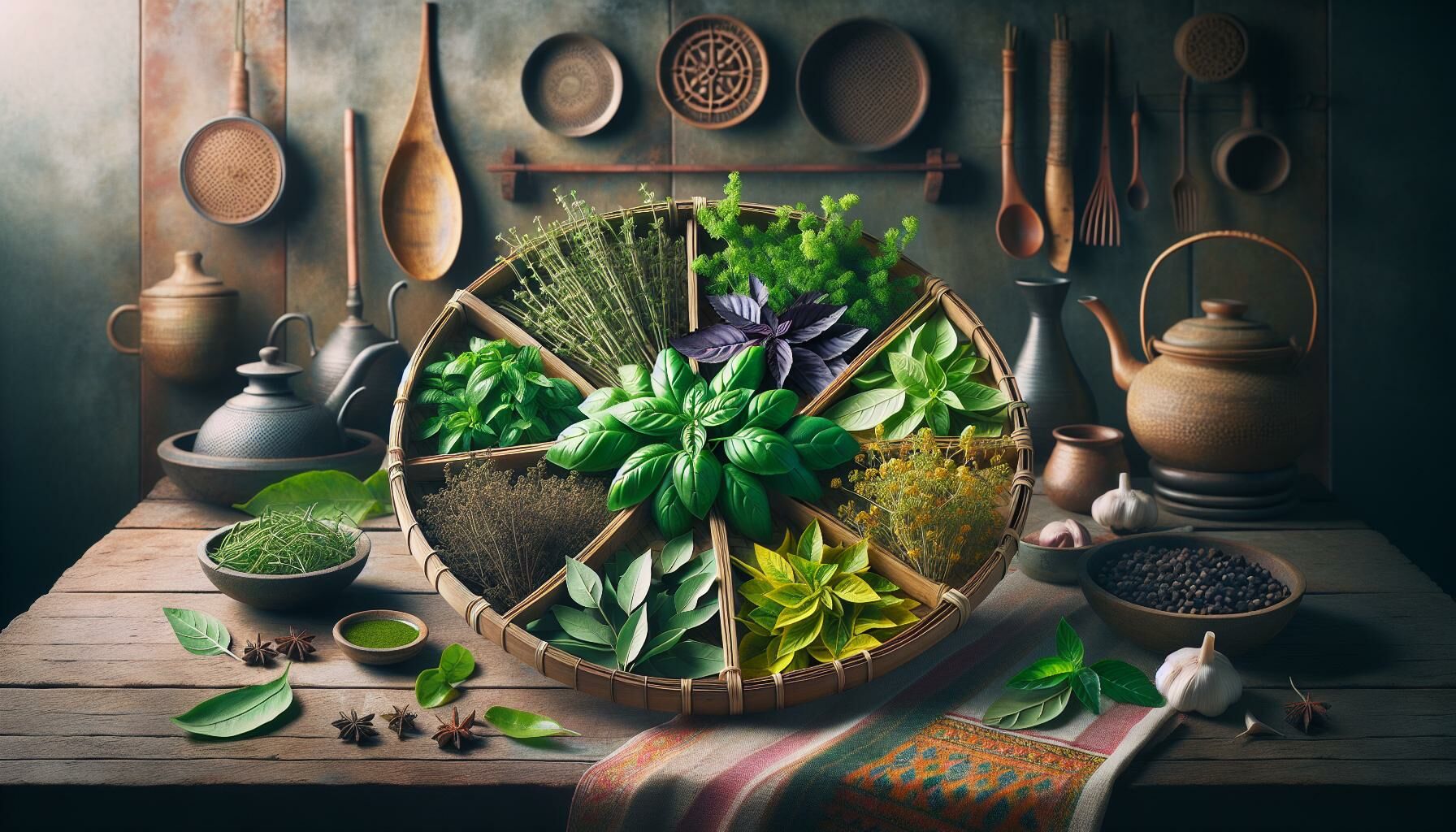Exploring Thai herbs traditions

Thai cuisine, globally renowned for its harmonious blend of flavours, owes much of its distinction to the strategic use of various herbs. These natural ingredients do more than just enrich the taste; they also contribute significant health benefits, making every meal a holistic experience.
This guide aims to take a closer look at some of the pivotal Thai herbs, shedding light on their historical roots, the myriad health benefits they offer, and the diverse ways they are utilised in Thai cooking. Through understanding these herbs, we gain insight into the depth and complexity that underpin Thai culinary traditions, where food becomes an art form that nourishes both body and soul.
Thai Herbs
Holy basil
Known locally as ‘Bai Kaprow,’ holy basil is a staple in Thai cooking, recognised for its sharp, peppery flavour. Commonly used in stir-fries and soups, this herb is valued for its stress-relieving qualities and its rich content of vitamins A and C.
Lemon basil
Lemon basil adds a refreshing citrus twist to salads, soups, and curries. It is prized for promoting digestive wellness and providing anti-inflammatory properties.
Sweet basil (Thai Basil)
Sweet basil offers an anise-like flavour that beautifully complements Thai dishes such as curries and stir-fries. It’s respected for its antioxidant capacity, support of cardiovascular health, and digestive benefits.
Bay leaves
While subtle in presence compared to other spices, bay leaves add significant depth to soups and curries with their rich vitamin C and A content, along with calcium and iron, which are essential for immune system support.
Coriander root
Coriander root is crucial for imparting a unique aroma to marinades and curry pastes. Beyond enhancing flavour profiles, it supports detoxification processes while being a good source of fibre, iron, and magnesium.
Vital to Thai cuisine, coriander leaves lend a fresh citrus flavour to various dishes. They are nutritionally beneficial, offering vitamins K, C, and A, which aid in maintaining strong bones and healthy vision.

Thai herbal remedies
Have you explored the realm of Thai herbal remedies?
Consider peppermint, for instance. This herb, commonly associated with refreshing gum, plays a pivotal role in Thailand’s medicinal practices. It is extensively used in nasal inhalers and balms due to its effectiveness in alleviating headaches, reducing sensations of dizziness or nausea, and promoting relaxation. In Thai households, it is considered an indispensable tool for managing common health issues.
Lemongrass serves as another example. Beyond its culinary applications that add a tangy zest to dishes, lemongrass is valued for its ability to reduce fever during Thailand’s torrid months. Its utilisation transcends flavour enhancement; it embodies a natural method for sustaining bodily coolness and wellness.
Pandan leaves also warrant mention. Beyond their aesthetic appeal in culinary settings, they contribute to creating invigorating beverages and balms that offer respite from the intense heat prevalent in Thailand.
Kaffir lime further exemplifies this tradition—its leaves and zest are integral not only to culinary endeavours but also play a crucial role in herbal remedies aimed at relieving muscle pain and swelling caused by various injuries.
These herbs—peppermint, lemongrass, pandan leaves, and kaffir lime—illustrate the seamless integration of food and medicine within Thai culture. This practice offers insight into their lifestyle, which prioritises harmony with nature. Thus, when discussing Thai herbal remedies, it is essential to recognise them as embodiments of this unique fusion between gastronomy and healing that enhances life naturally through traditional wisdom.
Thai herbs and cultivation tips
The video above is from GROW SOMETHING GREEN on YouTube channel.
Cultivating Thai herbs requires an understanding of their unique needs to thrive. Peppermint, lemongrass, pandan leaves, and kaffir lime each demand specific conditions for optimal growth, reflecting the rich agricultural heritage of Thailand. Here, we outline essential tips for nurturing these popular Thai herbs, ensuring a bountiful harvest.
- Lemongrass: prefers full sun and warm weather. It requires well-draining soil enriched with organic matter. This herb demands consistent moisture, but it is crucial to avoid waterlogging. Planting lemongrass in raised beds or pots ensures proper drainage. Trimming the top encourages branching, leading to a bushier plant.
- Pandan leaves: Regarding the cultivation of pandan plants, it is important to note that they thrive under bright, indirect sunlight and favour a humid environment, reminiscent of a steam room. They prosper in rich, loamy soil that retains moisture efficiently without becoming waterlogged. The paramount principle for their care involves maintaining moist soil conditions without excessive watering that could lead to overly saturated soil. Moreover, providing them with monthly fertilisation during their growth phases enhances their development.
- Kaffir lime: they exhibit a preference for direct sunlight and are not particularly selective regarding soil type, provided it offers adequate drainage. These trees perform optimally in slightly acidic to neutral pH soils. The irrigation strategy entails a balanced approach—ensuring the soil is sufficiently moist while allowing the top layer to dry out between watering sessions to prevent root rot. Similar to pandan plants, kaffir lime trees benefit from regular applications of balanced fertiliser during periods of growth.
Engaging with these gardening practices can significantly augment your ability to cultivate Thai herbs domestically or in a garden setting. Each herb possesses specific requirements for optimal growth, essentially serving as a guide to mastering the cultivation of Thai botanicals. Cultivating these herbs not only enriches your culinary repertoire with exceptional flavours but also allows you to partake in Thai herbal traditions. Mastery over the care of these plants ensures access to their culinary and therapeutic benefits without necessitating travel to Thailand.
Possible side effects of Thai herbs

Did you know that Thai herbs such as peppermint, lemongrass, pandan leaves, and kaffir lime possess remarkable qualities? Their benefits extend beyond merely enhancing the flavour of dishes; they also offer significant health advantages. However, it is crucial to exercise caution in their usage. The response to these herbs can vary significantly among individuals, and those with specific health conditions should carefully consider their use.
The Thai herbal compress, for instance, is highly effective for relaxation and alleviating muscle tension. Nonetheless, individuals with sensitive skin should proceed with caution to avoid adverse reactions. While these herbs provide considerable benefits when used appropriately, excessive use or direct application on the skin without proper dilution may lead to undesirable effects.
Prior to incorporating any new herbal regimen into your routine, consulting with a healthcare professional is advisable. This ensures that the chosen approach is suitable for your personal health profile. Furthermore, learning about the cultivation of these herbs can enhance our appreciation and promote their judicious use—acknowledging their potency while recognising their limitations. It is imperative to approach herbal usage with both safety and knowledge at the forefront.
As we see, Thai herbs serve dual purposes, delighting the taste buds and nurturing the body. Their varied uses across regions not only showcase the geographical diversity of Thai cuisine but also highlight Thailand’s deep-rooted connection to nature and holistic health. By integrating these herbs into daily meals, Thai cooking offers a lesson in balancing pleasure with wellness, inviting not just Thais but global enthusiasts to embrace this harmonious way of life.
Latest Thailand News
Follow The Thaiger on Google News:


























